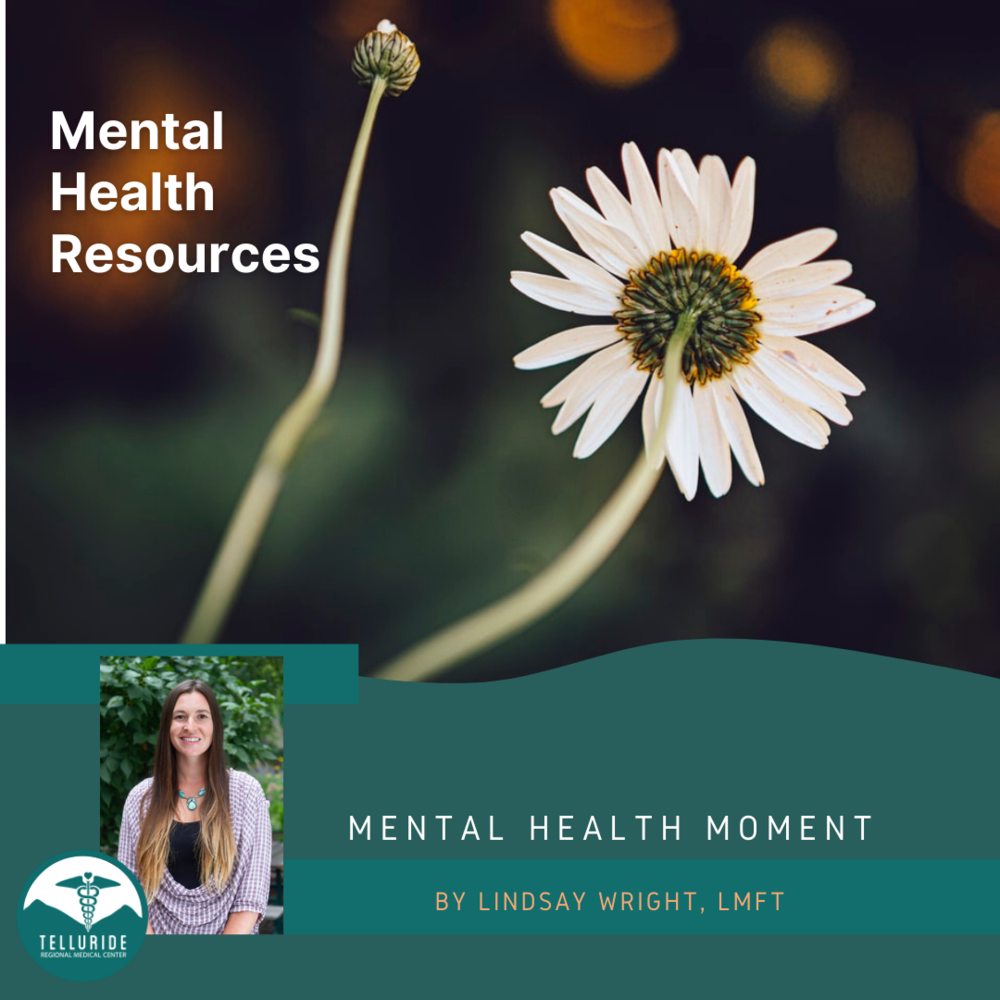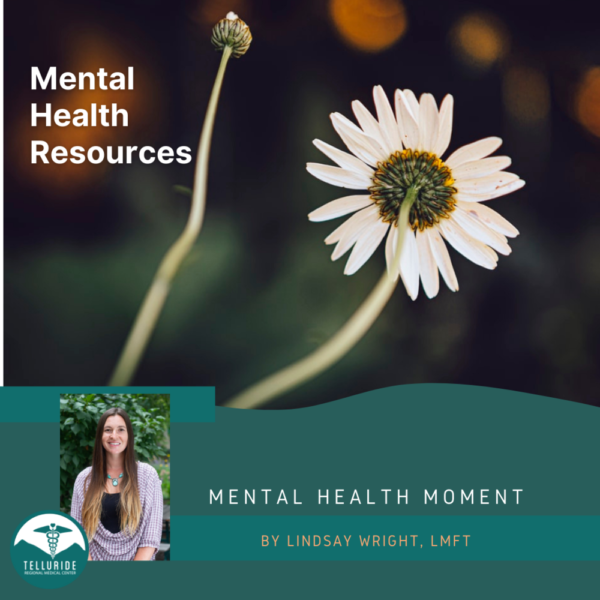
20 Mar Telluride Med Center: Mental Health Moment, Processing Grief/Finding Help!
If you are experiencing a mental health crisis, call The Center for Mental Health’s crisis line at 970.252.6220. For help with deep stress, Behavioral Health expert Lindsay Wright can be reached by calling the Telluride Medical Center at 970-728-3848 or, if you are a patient, by messaging her through the Telluride Medical Center portal.
In this week’s Mental Health Moment, Lindsay shares her thoughts about processing grief and finding help.
Go here for more Mental Health Moments.

For many of us, this past week has felt heavy and hard. Much of our town is trying to process the loss of a beloved local, while simultaneously trying to juggle one of the busiest times of the season.
Loss may open old wounds of previous losses, which can compound grief and mourning.
For others, this may be the first experience of death, which can be confusing and scary to navigate.
Regardless of how this loss is being experienced, I wish to express my sincerest condolences to everyone who is grieving; it is not easy, and you are not alone.
If you or someone you know is struggling with suicidal thoughts, it’s important to get help. There are resources in the community.
If you are experiencing a mental health crisis, please call The Center for Mental Health’s crisis line at 970.252.6220.
During this time, please be kind to yourself. Remember that all emotions have a purpose, and however you feel in the wake of a loss is ok.
In the grieving process, there are some universal commonalities in people’s experience; there are thought to be seven stages of grief the majority of people will experience. There may initially be a feeling of shock or denial, of not being able to understand or believe that a loss has occurred. There can be pain or guilt, emotions may feel overwhelming. Some people may experience anger, or bargaining, as a means of attempting to find relief from these large emotions.
Grieving can result in feelings of depression, loneliness and reflection on the loss. Many experience a period of time called “the upward turn” in which the more emotional stages of grief have quieted, and they are able to feel more relaxed and calm.
Following this, a period of reconstruction and working through can occur, in which individuals can begin to move forward.
The final stage is acceptance and hope, in which folks can start to regain optimism regarding the future.
Not everyone experiences every stage of grief, there is no expectation for the duration of mourning, and they often do not present in a linear fashion.
While grief and mourning are not easy, there are things that can help. Staying connected to others, particularly those who understand what you may be going through, can help us to feel less alone.
Being able to express how you feel is also valuable while mourning. Spend time talking with friends, journaling, or making art to get your feelings out. Engaging in rituals can be another way of processing through the grief.
Rituals are deeply personal to each individual’s personal beliefs and culture, and can include activities such as lighting a candle for those we’ve lost; sitting Shiva; riding your bike down the deceased’s favorite trail; attending memorials; or planting a tree in their honor.
Read more about suicidal warning signs and how you can help here.
This is a challenging time for all of us, don’t hesitate to reach out if you need support.
Be well…


Sorry, the comment form is closed at this time.